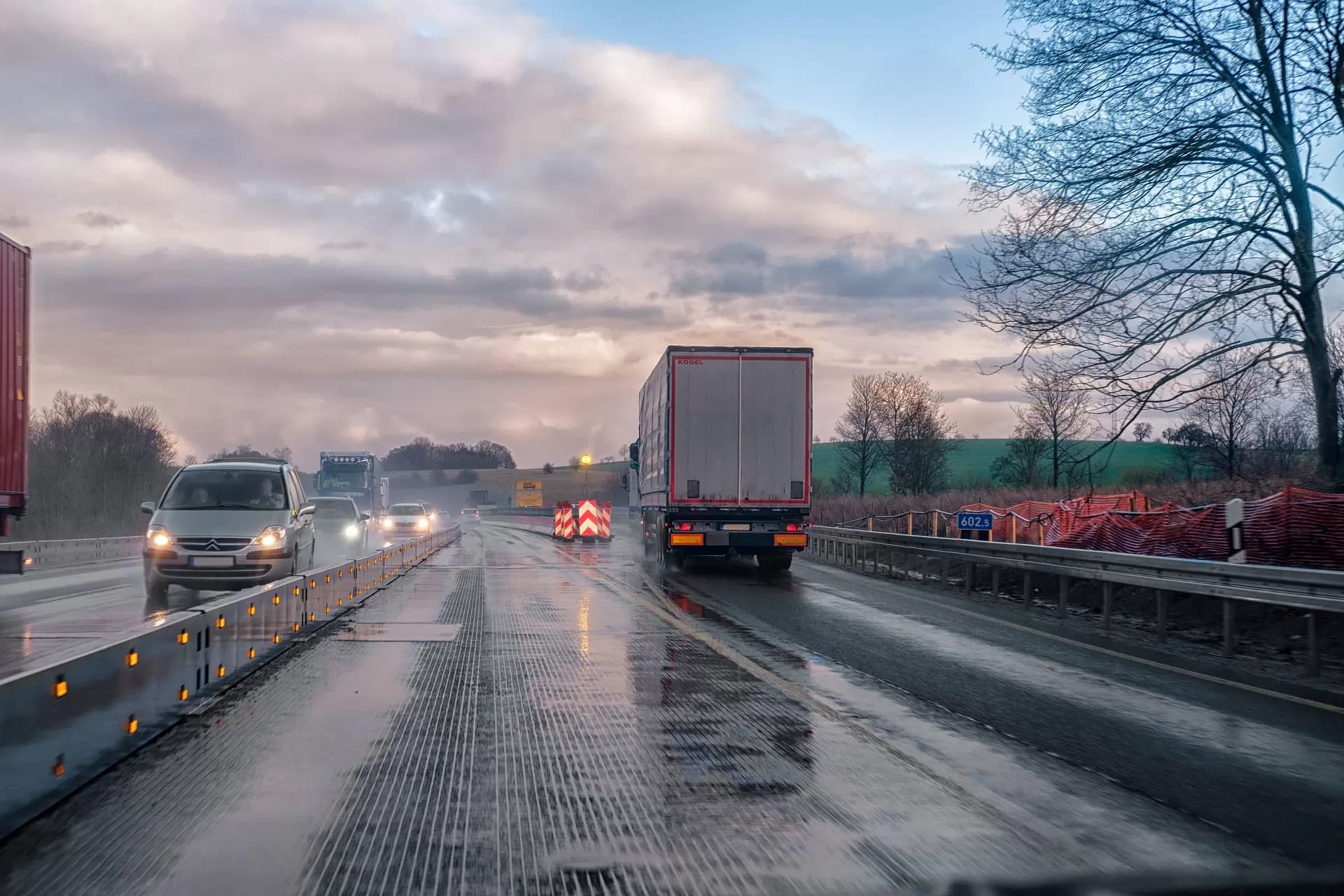Application Form
Please fill out the form below, so we can contact you as soon as possible!

Heavy rain is common fall weather. But driving on wet roads can be a challenge for truckers because sometimes it can be difficult to control a big rig. Here are some safety tips for trucking your semi in the rain that will help you to avoid accidents and stay safe and sound.
Checking your truck before every ride is extremely important, especially when you have to deal with rainy weather. You must be sure that everything is working properly: windshield wipers, headlights, taillights, etc. Pay special attention to your tires and check the air pressure. And don’t forget to ventilate the truck so the windows don’t fog up in increased humidity.
Of course, the weather is unpredictable, but the most important thing you can do before you head out is to check the forecast. It will help you plan your trip better. BTW look for unusual weather patterns such as flash floods that are common in the area you are going to.
When driving a semi-truck in the rain even several miles over the speed limit can lead to an accident. The biggest problem can be hydroplaning, where the tires rise up on a film of water. So if you want to control the situation, slow down or even drive under the posted speed limit.
Distracted driving can be dangerous even without difficult weather conditions. So put your phone on silent, place your drinks and snacks nearby and always keep your hands on the wheel. Keep the radio on with low volume so you can hear what is happening around you.
Give your truck and other cars plenty of room. In an emergency, if you need to stop your semi, it will be more difficult to stop it while driving in the rain. So leave some extra space between you and other vehicles and slow down before intersections and when turning.
You know your vehicle better than anyone else. So if you feel the truck fish-tailing, don’t be afraid to park your big rig and wait until the weather improves. Rainy weather causes delays and you shouldn’t risk your safety.
Application Form
Please fill out the form below, so we can contact you as soon as possible!